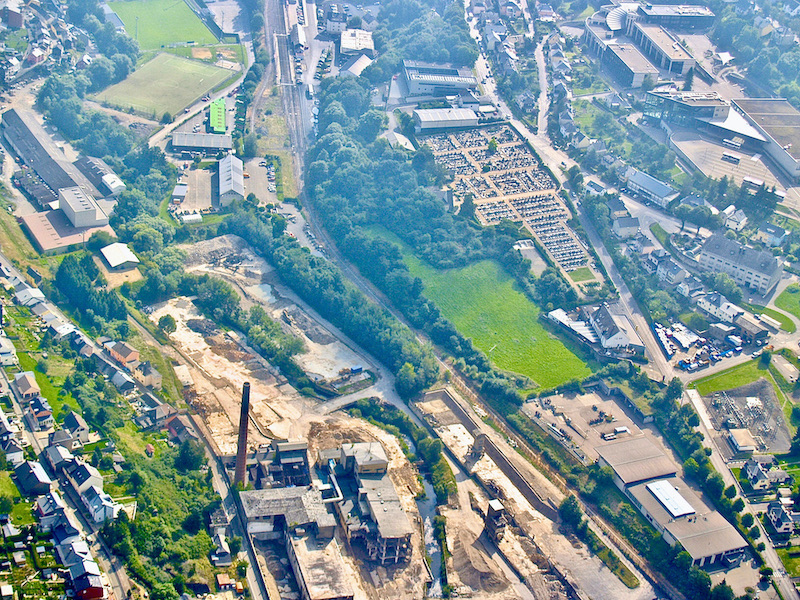« Depuis bien des années les acteurs politiques et économiques du canton de Wiltz s’efforcent de diversifier le tissu économique de cette région en se proposant d’y créer de nouveaux emplois, notamment dans le secteur des services et de l’artisanat. La revalorisation des friches industrielles à Wiltz est certes un projet porteur d’avenir pour le canton.
L’Etat s’y propose en effet de construire quelque 870 logements pour environ 2000 habitants sur la période 2023-2038. Il faut cependant se poser la question si ces nouveaux habitants, en particulier les jeunes, se verront obligés, dans leur majorité, de faire la navette entre Wiltz et l’un ou l’autre centre d’activités du pays ou bien s’ils verront également des perspectives d’emplois réalistes dans leur région d’habitation.
En fait, afin de réduire entre autres les embouteillages aux heures de pointe le gouvernement a précisé dans l’accord de coalition 2018-2023 qu’ « une politique de décentralisation économique sera mise en œuvre dans le cadre de la politique de l’aménagement du territoire avec comme objectif de créer davantage d’emplois décentralisés et de promouvoir la création de structures « Open Office » afin de limiter les mouvements pendulaires entre la capitale et sa périphérie. »
Voilà pourquoi j’aimerais poser les questions suivantes à Monsieur le Ministre de l’Economie:
- Monsieur le Ministre peut-il retracer l’évolution des activités économiques dans le canton de Wiltz depuis 2011 en ventilant notamment par type d’entreprise et par branche économique ? Est-il également possible de retracer l’évolution démographique du canton de Wiltz et celle de l’emploi dans les différentes branches de l’économie locale ?
- Quelle stratégie actuelle le gouvernement déploie-t-il en vue de soutenir le développement économique du canton et d’accroître l’attractivité de celui-ci sur le plan infrastructurel ?
- Monsieur le Ministre peut-il fournir des informations sur des investisseurs potentiels qui lui auraient signalé de vouloir s’installer dans des zones d’activités situées dans le canton de Wiltz dans un avenir proche? Dans l’affirmative, de quelles entreprises s’agirait-il ?
- Monsieur le Ministre est-il d’avis que les seules activités de l’économie circulaire soient en mesure de diversifier suffisamment le tissu économique du canton ? Autrement dit, n’est-il pas indispensable d’y développer davantage des activités industrielles de haute technologie réalisant des produits innovateurs de valeur ajoutée élevée et d’y offrir également un environnement intéressant pour les prestataires de services ? »
Answer
With a population growth of about 30% between 2011 and 2021, the canton of Wiltz has exceeded the national average. The number of jobs has also increased in the northern region. According to the Minister of Economy, 13 local companies were able to benefit from government subsidies for research, development and innovation projects in the last 10 years. In the near future, the canton of Wiltz would be provided with new land for the expansion of its economic activities, so the minister said. 6.5 hectares will be given to the Z.A.R.W syndicate and another 20 hectares are hold in reserve by the plan sectoriel. The city of Wiltz and its surroundings should be further positioned as prime locations for circular economy operations, without neglecting the potential of other industries such as high technologies.






